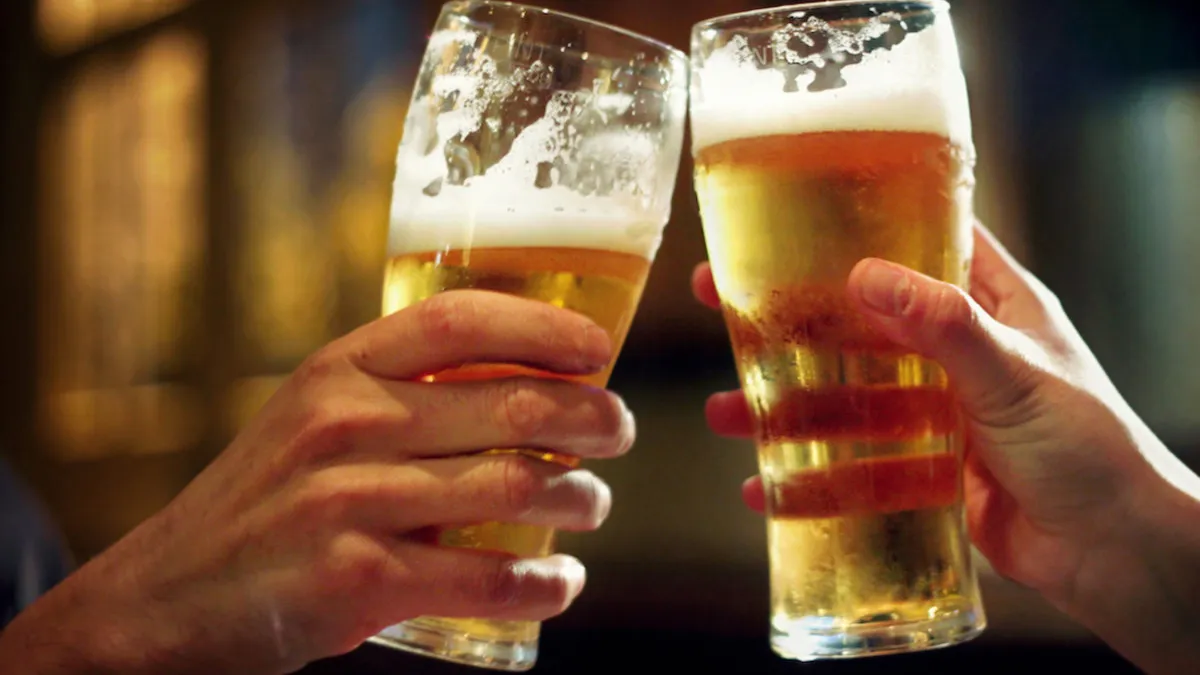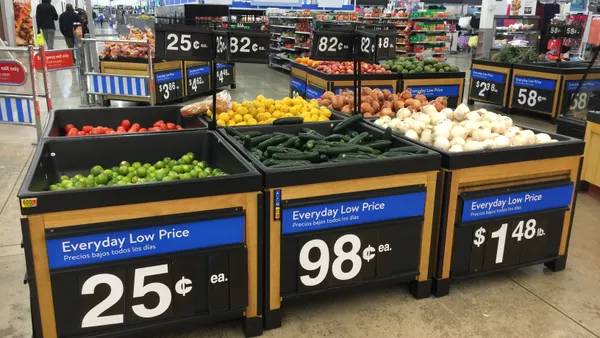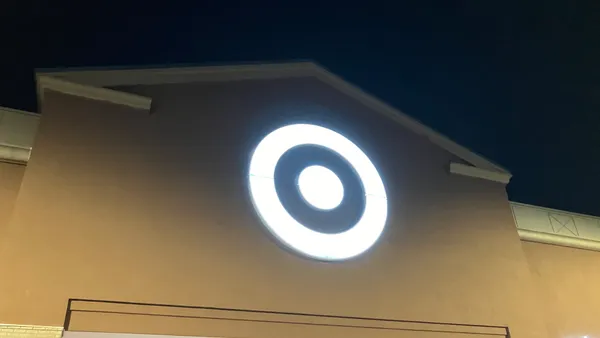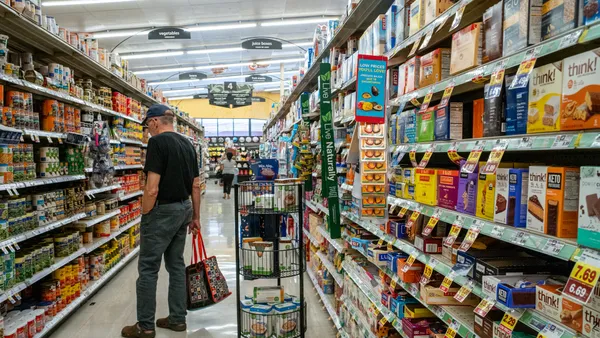Dive Brief:
- Researchers in China, Britain and the U.S. found that drought and heat could drastically hurt barley crops, which would spike beer prices and decrease global supply by the end of the century, according to a new study published in Nature Plants on Monday.
- To project warming trends up through 2099, the researchers used computer models. They used a process-based crop model and a global economic model in order to evaluate the effects of extreme heat and drought under different climate scenarios, from least severe to most severe.
- Yields of barley — beer's main ingredient — declined sharply in periods of extreme drought and heat with average yield losses ranging from 3% to 17%, depending on the severity of the conditions. This kind of loss would "dramatically" decrease the global supply of barley used to make beer, the report said.
Dive Insight:
The most popular alcoholic beverage in the world could become a lot more coveted. Although it might not be the top concern in the impact of climate change, this study claims that weather extremes would threaten both the supply and cost of beer around the world.
Decreases in the global supply of barley would result in "dramatic regional decreases in beer consumption," according to the study. In the worst case scenario, nations like Argentina would lose 32% of their total supply. In the U.S., consumption could decrease by up to 3.48 billion liters.
The loss of supply could lead to a major increase in prices. Ireland, which leads the world in per capita beer consumption, could see a $4.84 price increase per bottle, according to the study. U.S. consumers could see a price increase of about 34%.
As the beer industry grapples with changing consumer desires, it could take another big hit if climate change forces prices to increase and supply to drop. While beer is still popular around the world, this study comes at a time when the U.S. beer industry has already been struggling. Beer volume in the U.S. has declined for five consecutive years. As Americans shift away from domestic lagers, producers have added more Mexican imports, craft beers, wines and spirits. Some companies are even trying out nonalcoholic and lower calorie beers to meet consumer needs.
Since American consumers were already turning away from beer, an ingredient shortage could continue to hurt business, forcing Big Beer to innovate with new ingredients. But this isn't the only industry struggling to figure out changing temperatures.
This research comes shortly after the release of the United Nations' bombshell report on the impact of global warming. Researchers found that supplies of food crops for people and animals face serious threats from rising temperatures. Climate change has continued to be a topic of discussion in the food and beverage industry as the potential impacts have become more clear and imminent, pressuring companies to make more sustainable moves before it's too late.
Other research has found that climate change could decrease yields of commodity crops, including wheat, cocoa and corn. U.S. companies depend on some of these ingredients to manufacture popular products. A price spike in some of these items could sharply hurt markets — not to mention companies that rely on them, like confectioners that make chocolates. Releasing these studies now — and illustrating the impact of the most extreme changes — could help companies better prepare for the future.
In recent years, food and beverage companies have been criticized for not doing enough in the way of sustainability or preventative measures to decrease climate change. While some major food and beverage companies have committed to reducing greenhouse gas emissions, many scientists, researchers and consumers have claimed there is more that they can do. As these studies continue to reveal the potential consequences of climate change, companies could start working to find new ways to increase their own sustainability.















